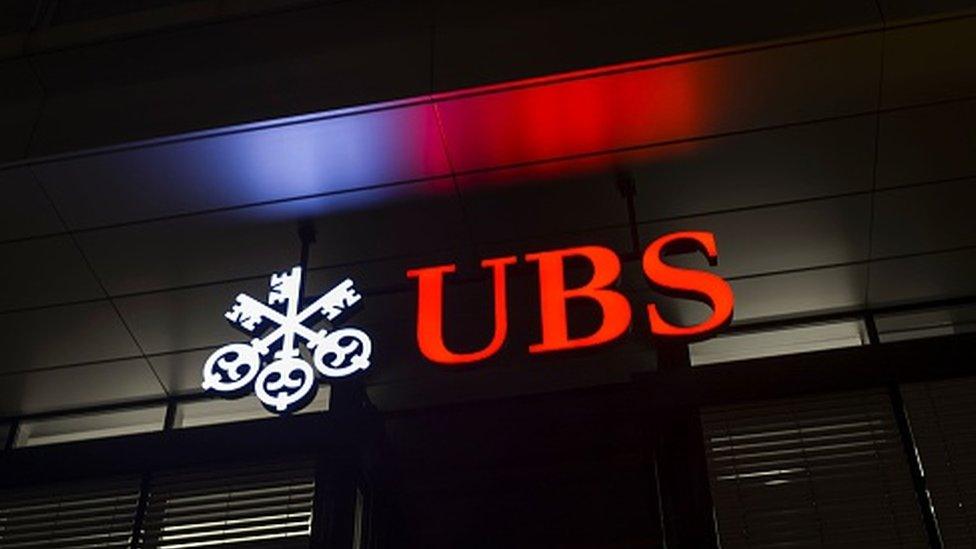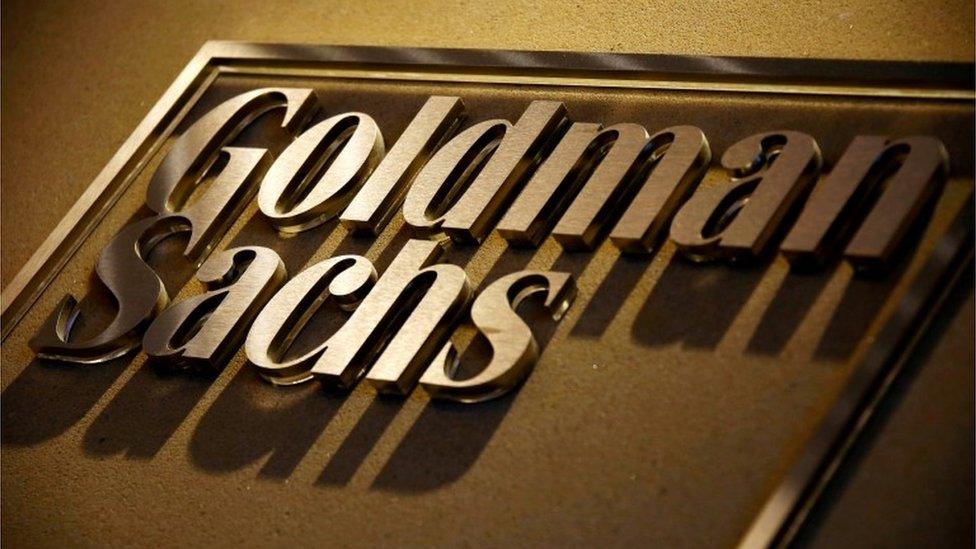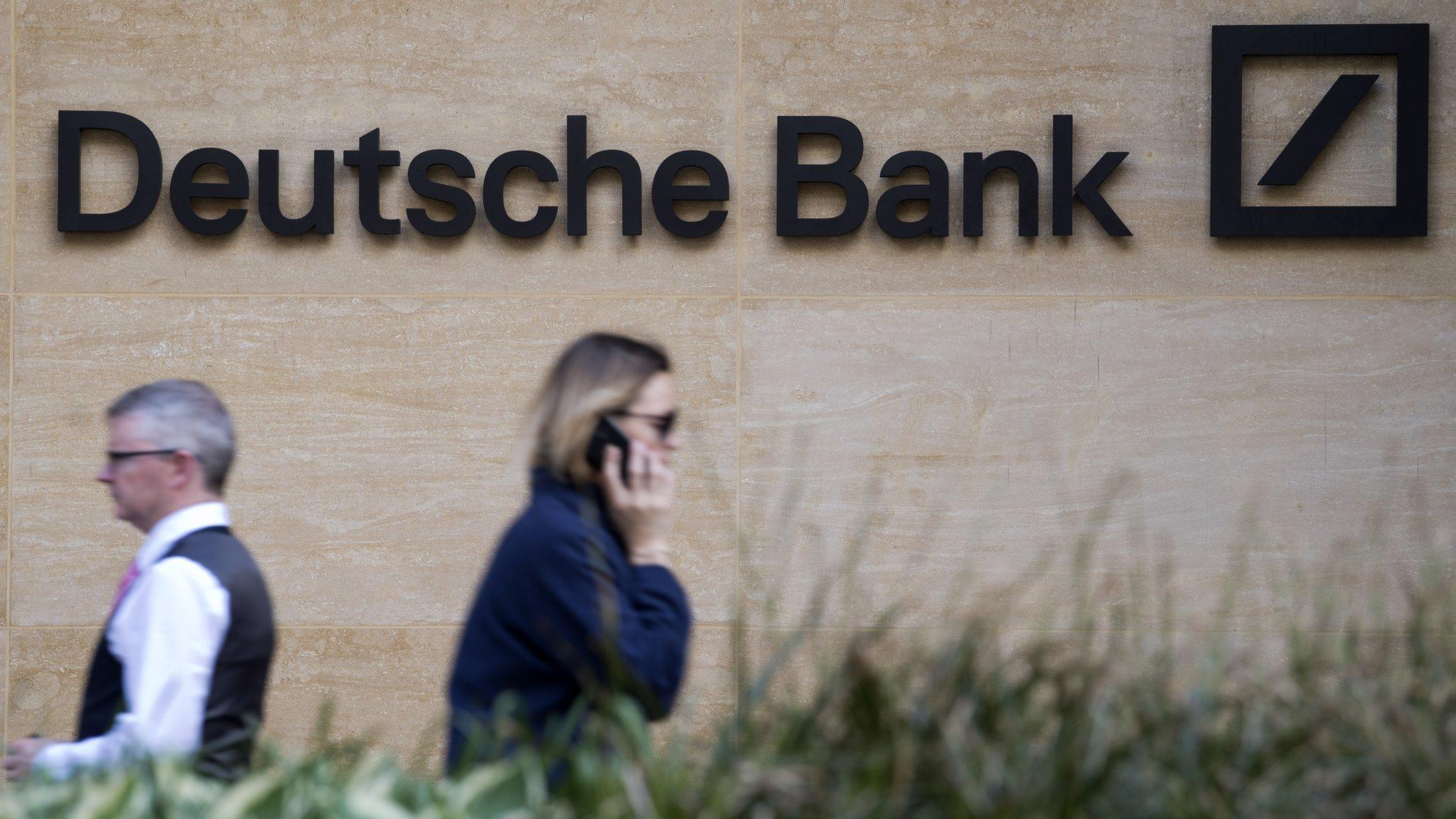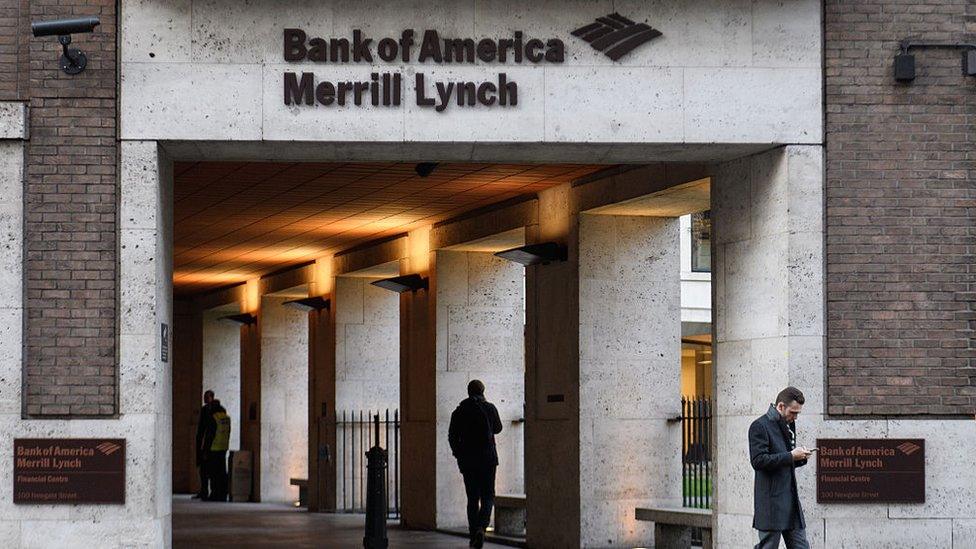UBS Libor 'chats were company policy'
- Published

Practices for which some traders have been prosecuted, jailed or banned were company policy at the Swiss bank UBS, a court has heard.
UBS staff were expected to take into account the bank's commercial interests when setting the benchmark Libor rate, the High Court was told.
Lawyers for former trader Arif Hussein cited evidence to support that claim.
They are seeking to overturn a Financial Conduct Authority decision to ban him from the industry.
The regulator, the Financial Conduct Authority, claimed it was "obvious" that the bank should not take into account the bank's commercial interests when setting Libor.
'Doing his job'
But lawyers for Mr Hussein said there was evidence to show bosses directed staff to do precisely that as part of best commercial practice - and that Mr Hussein, a junior trader at the bank, was in fact doing as instructed.
"He was doing precisely what he believed he was expected to do. There is no hint of subterfuge or dishonesty. This is a man who was doing his job diligently down to the very last minute," Sara George of Stephenson Harwood, Mr Hussein's lawyers, told the court.
Libor, which stands for London Interbank Offered Rate, tracks the average interest rates banks pay to borrow money from each other.
The interest rates of trillions of pounds of mortgages and commercial loans are linked to Libor.
Every day, a member of staff at each of 16 banks - the submitter - would state what interest rate they thought their bank would have to pay to borrow cash from another bank. An average would be taken and published.
At the same time, banks had large positions - investments that could gain or lose money if Libor moved up or down.
Since Libor was introduced in 1986, traders in charge of supervising those investments have frequently made requests of Libor submitters - asking them to tweak their bank's estimates of the interest it would pay up or down by a hundredth of a percentage point or two.
Prosecutors have brought four trials for Libor rigging and levied billions of pounds in fines against banks including UBS for the requests, claiming they were dishonestly seeking to nudge the Libor average in their favour, motivated by greed.
But traders such as Mr Hussein had no reason to think it was dishonest, his lawyers said.
Instead, asking for a higher or lower Libor, within a range of interest rates at which the bank might borrow, was normal, endorsed by their bosses and regarded as best practice.
'Chats'
Lawyers for the Financial Conduct Authority told the court the authority had announced in June 2016 that it was banning Arif Hussein, claiming he knowingly or recklessly engaged in behaviour which was improper.
The evidence cited to ban him focused on messages sent between Mr Hussein, who traded derivatives at UBS, and Adrian Keller, who made the bank's Libor submissions, between 28 January and 19 March 2009.
In those "chats", Mr Hussein told Mr Keller of his trading positions and whether they would benefit from a higher or lower Libor.
Mr Hussein's lawyers told the court he can show he could not have been motivated by greed; at the time of the chats he had already decided to leave the bank and therefore could not have collected bonuses affected by the Libor submissions.
They cited evidence which they said showed that informing Libor submitters of the bank's trading positions was condoned and encouraged by UBS bosses on commercial grounds.
That evidence included:
An email chain on 9 August 2007 between UBS's top Libor expert and Mr Hussein's colleague, Pete Koutsogiannis, and senior UBS Treasury manager Gaspare Lasala, in which it is made clear that taking into account the bank's trading positions and profits is normally a priority.
In the email, Mr Lasala says: "It is highly advisable to err on the low side with fixings for the time being to protect our franchise in these sensitive markets. Fixing risk and PNL (profit and loss) is secondary priority for now."
A direction to Libor submitters from the UBS compliance department, dated 16 February 2009, telling them to seek information from traders about the derivatives market.
A spreadsheet used by Mr Hussein and others in UBS to upload their trading positions, visible to others within the bank, to help Libor submitters make their estimates taking the bank's commercial interest into account.
An interview with the Financial Services Authority with the banker in charge of sterling Libor submissions, Andrew Walsh, in which he said that taking into account the bank's trading positions was accepted.
"The authority's case is holed below the waterline because of the insistence of senior managers, because of the compliance directions at the time," Ms George said.
For the FCA, Ben Strong QC said the FCA had been "fully entitled to decide to prohibit Mr Hussein on the facts as it understood them. The case for a prohibition order is now stronger than before."
For Mr Hussein, Sara George said: "The [FCA] has failed to explain how a very junior trader, who had no other experience of financial services, no training, no guidance and no possible means of benefitting from a practice, should have known in 2008 and 2009 that it was obviously wrong for trading positions to be factored into Libor submissions."
The case continues.
- Published29 December 2017

- Published25 October 2017

- Published23 October 2017
